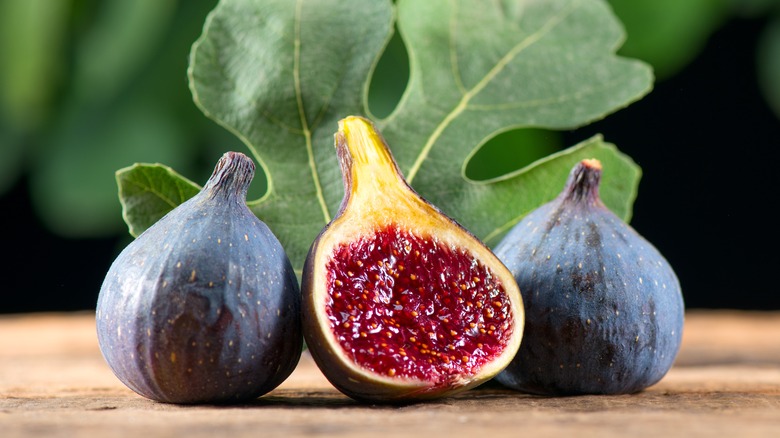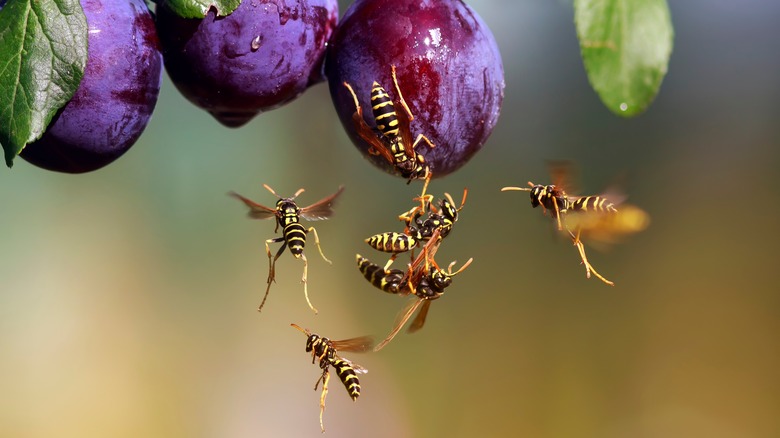The Reason Some People Do Not Consider Figs Vegan-Friendly
Despite how it may be perceived, veganism isn't a one size fits all concept. It's not a religion — there's no higher power, nor does it hold an institutionalized system of beliefs, as Marriam-Webster defines it. At its heart, veganism is a lifestyle philosophy, one that views all life forms as equals that are deserving of respect. In recent years, however, veganism has also become a moral choice in relation to personal health, as well as the impact animal agriculture has on the world, per Vegan Society. That being said, no guidebook defines veganism, and no bible outlines the attributed values or moral choices you must share to be considered one.
So, seeing as veganism revolves around the foods you do or do not consume, there's a particular grey zone of foods that some vegans see as okay to eat, and some do not. Foods that have come under controversy within the community include honey, almonds, avocados, and, most recently, cultivated meat (via The Washington Post and Veganuary). The decision of whether one person chooses not to consume certain food and another does simply comes down to their personal approach to veganism. While most of the controversial foods have an unmistakable animal or insect-linked source, there's another food that's come under debate under the scope of veganism. As it turns out, figs, a sweet and seemingly innocent fruit, are actually quite deadly for a particular insect.
Wasps die in the process of pollinating figs
At first glance, figs couldn't hurt a fly — but what about a wasp? According to Healthline, wasps play an essential role in fig reproduction, and the same can be said vice versa. Due to their enclosed shape, wasps are the fruit's only natural pollinator. But, not in the way, you may imagine that the wind or bees pollinate other species. To pollinate figs, a 2001 study published in the National Library of Medicine found that female wasps must break off their antennas and wings to fit through the fruit's small opening. Then, they lay their eggs inside and die shortly after. Over time, enzymes in the fig break their bodies down as the eggs get ready to hatch.
It sounds terrible, but it gets better. After the eggs hatch male larvae enter the fig to mate with the female larvae, and they all eventually leave the fruit — carrying the fig's pollen with them in the process. In doing so, they carry on the lifecycle of not only their species but the figs as well. So, even though figs technically do play a role in the wasps' demise, they also rely on wasps to carry their pollen out into the world. It's a natural, symbiotic relationship that both species rely on for survival. So, while some people may suggest vegans avoid eating figs, others see no issue in it.

